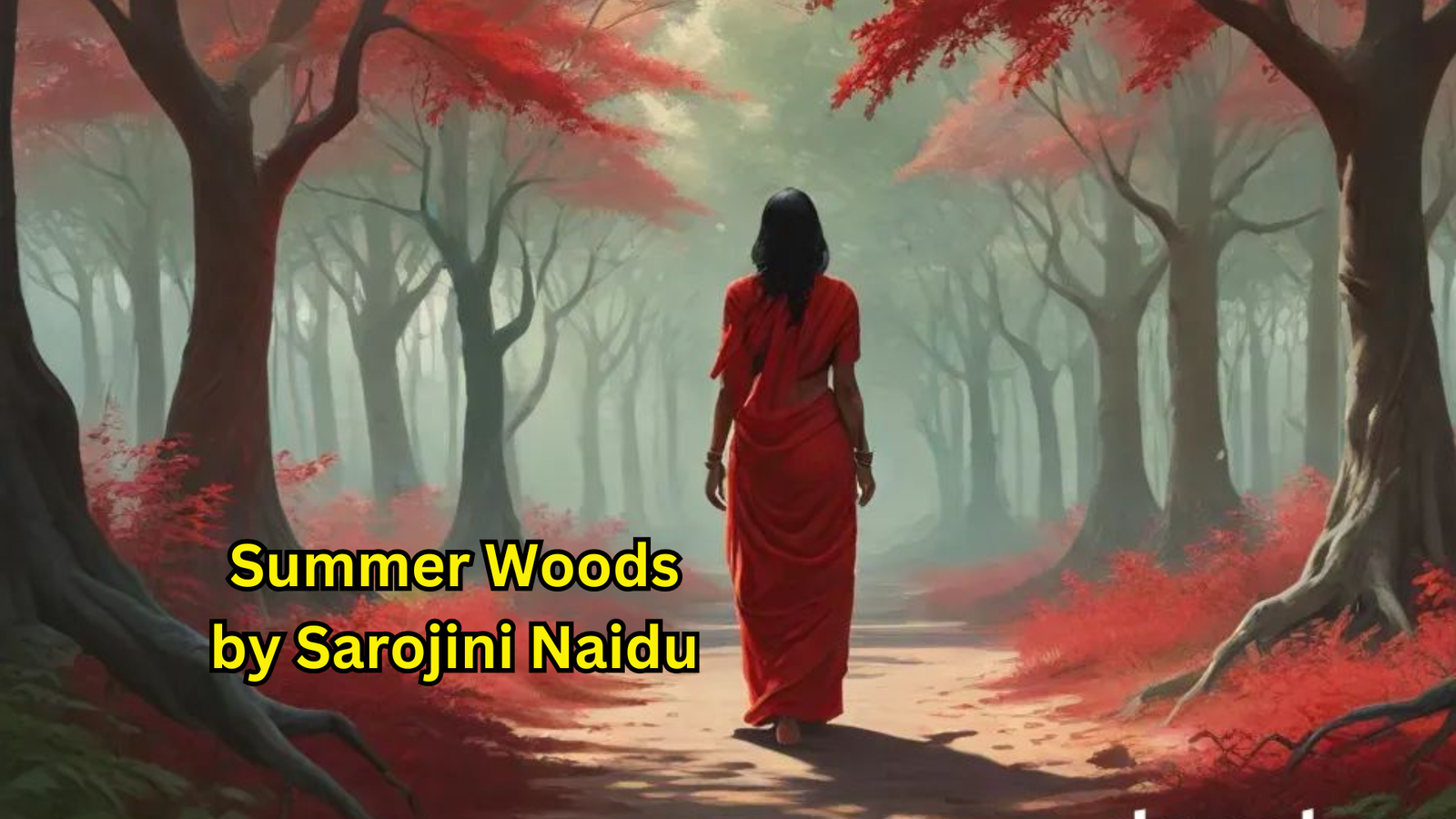Summer Woods summary for the BA English Honours Student for Semester II. VBU and BBMKU Univerity English Notes are available on JPathshala. You can watch our video lessons on YouTube by Searching Jharkhand Pathshala.
Summer Woods by Sarojini Naidu
O I AM tired of painted roofs and soft and silken floors, And long for wind-blown canopies of crimson gulmohurs! O I am tired of strife and song and festivals and fame, And long to fly where cassia-woods are breaking into flame. Love, come with me where koels call from flowering glade and glen, Far from the toil and weariness, the praise and prayers of men. O let us fling all care away, and lie alone and dream 'Neath tangled boughs of tamarind and molsari and neem! And bind our brows with jasmine sprays and play on carven flutes, To wake the slumbering serpent-kings among the banyan roots, And roam at fall of eventide along the river's brink, And bathe in water-lily pools where golden panthers drink! You and I together, Love, in the deep blossoming woods Engirt with low-voiced silences and gleaming solitudes, Companions of the lustrous dawn, gay comrades of the night, Like Krishna and like Radhika, encompassed with delight.
Summer Woods summary
Sarojini Naidu is a poet of rapture, agony, and ecstasy. She is truly the nightingale of India in her perfect lyricism and delicious melody. Her poetic sensibility is essentially romantic. In ‘Summer Woods’ she communicates her aversion to the artificiality of the pseudo-modernism in which she thrived. She tries to find refuge in nature from his existence and the mechanical routine’s monotony.
She begins by boasting that she is sick of ‘painted roofs and soft and silky floors’ or the lies of so-called civilized and sophisticated life. It probably refers to the process of automation and the industrial revolution. On the other hand, they long for summer houses with overhanging canopies of bright red Gulmohar. They appear to be beautiful and charming when accompanied by a breeze-like wind. It is also full of controversy and songs, festivals, and fame. The affectation and luxury of the present age seem too hollow for her taste. They only leave her feeling empty. He longs to retreat to the woods where the cassia flourishes and longs to dwell in the enchanted and fascinating atmosphere there.
She begs her lover to return with her to the pastoral closeness of nature, where passion and instinct rule over calculation and manipulation. It is where the koels call each other from the clearings and ravines. Their voices ignite our passions. He wants to get rid of the pomp of social life and the pomp of public life. They long to lay aside their cares and lie down in the company of their beloved under the tangled branches of tamarind, molsari, and neem, which with their natural hues relieve their weariness.
The poetess wants to connect their foreheads with jasmine. They long to play the carved flutes to awaken the slumbering snakes among the thick banyan roots. The snake has phallic connotations. The poet used it as a symbol of phallic fear in a village song. Later at dusk, she wishes to wander with her lover along the river bank and bathe in the water lily pools where the golden panthers drink.
In the final stanza, the poetess tells her love that they should lie in loving silence in the deep blossoming woods. These love-expressed silences are more eloquent than simulated speeches and affected dialogues. They are the companions of the bright day, the merry companions of the night, and will be surrounded by delights like Krishna and Radhika.
The transition from day to dusk to night in three stanzas gives the impression that she wants to spend all her time with her beloved. From stanza to stanza, it transcends from vegetation to animal existence and then to the divine level of Krishna and Radha. It means uplifting her spirit. At the next level, he transcends from refined reality to the raw reality of myth (in the form of Krishna and Radha). It seems to be her panacea for the nihilism that exists in modern life, this is her concept of existentialist escapism.

